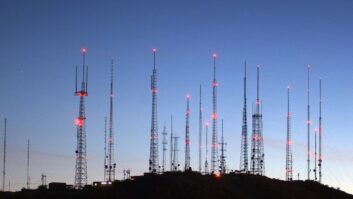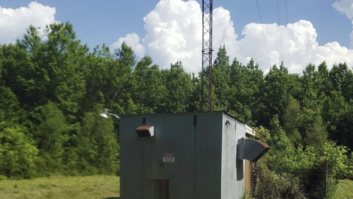
FCC Commissioner Michael O’Rielly recently spoke at the 2017 Wireless Infrastructure Show and one area in particular drew the praise of the National Association of Tower Erectors.
O’Rielly devoted some of his time to tower marking; he described the FAA Extension, Safety and Security Act of 2016 as “two steps backward.” NATE subsequently praised the commissioner’s “common sense approach.”
As reported, the FAA’s legislation outlined tower obstruction marking provisions for the communications tower industry, mandating improved physical markings and/or lighting on towers ranging from 50 to 200-feet tall. Some of the reasoning behind the provision involved the potential dangers for crop dusters running into towers.
“Carrying out the burden as written will be an extremely expensive undertaking due to the cost of the specialized labor that climb these towers,” O’Rielly told the conference. “It is without question that there have been accidents involving crop dusters. But, it doesn’t appear that communications towers are to blame one iota. According to requisite data, there is a good chance that, had the new provision of law been in effect, it would not have saved any pilot lives or prevented any crashes or incidents.”
Wrote Todd Schlekeway, NATE executive director, in the organization’s press release: “Commissioner O’Rielly articulated the impracticalities and unintended consequences of the onerous tower marking provisions the industry is dealing with in the aftermath of the FAA legislation that was passed late last year. NATE thanks Commissioner O’Rielly for utilizing his platform to not only call attention to this issue but also offer common sense improvements that can be made to these requirements.”
NATE said it is working with a coalition of national wireless and broadcast industry organizations to seek practical improvements to Section 2110 of the act.
For O’Rielly’s complete comments, click here.
— TV Technology










